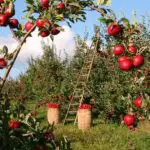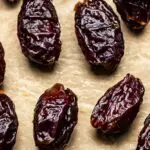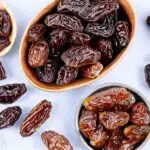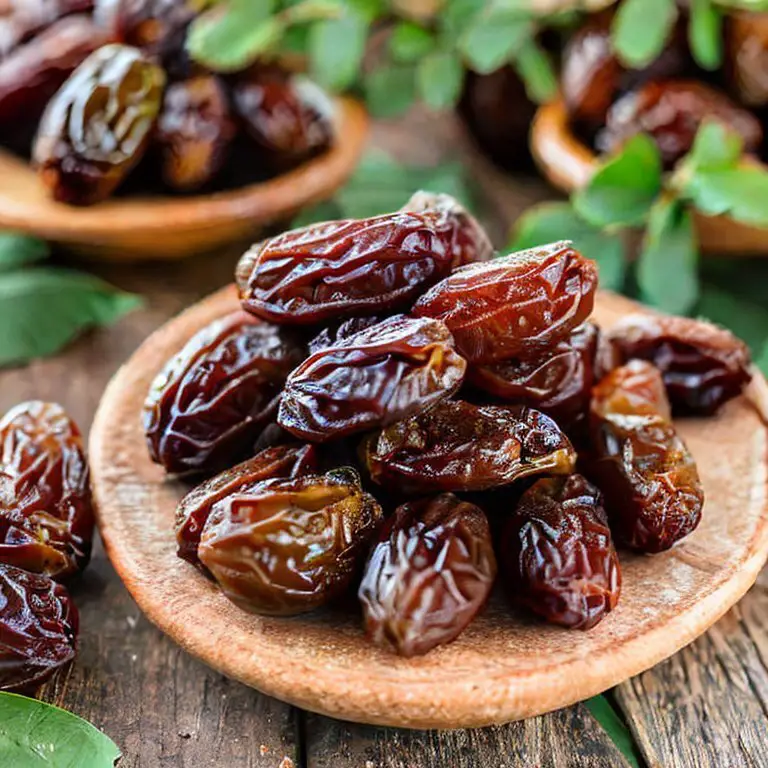
Medjool dates are a type of large, sweet, and succulent fruit that is native to the Middle East. They are grown on palm trees in regions such as Morocco, California, and Israel. These dates are known for their rich, caramel-like flavor and chewy texture. (See Medjool Dates vs Pitted Dates) They are commonly consumed as a snack or used as a natural sweetener in various recipes. However, there is a common misconception that Medjool dates are dried fruits.
In this post, we will explore whether or not Medjool dates are dried.

Table of Contents
Are Medjool Dates Dried Fruits?
To understand whether Medjool dates are dried, it is important to first define what is meant by the term “dried fruit.” Dried fruits are fruits that have had their water content removed through a drying process, such as sun-drying, oven-drying, or dehydration. This process concentrates the sugars and nutrients in the fruit, resulting in a sweet and nutritious snack that can be enjoyed year-round.
Medjool dates, on the other hand, are not technically dried fruits. While they may appear to be dehydrated due to their chewy texture and wrinkled appearance, they are actually considered to be fresh fruits. This is because they are harvested from the palm tree when they are fully ripe and then undergo a process called “drying on the tree.”
Drying on the tree is a natural process that occurs when the Medjool dates are left to ripen on the palm tree until they reach their peak flavor and texture. As the dates mature, they lose some of their moisture content and become slightly firmer, darker in color, and sweeter in taste. However, they are still considered to be fresh fruits as they have not undergone any artificial drying process.
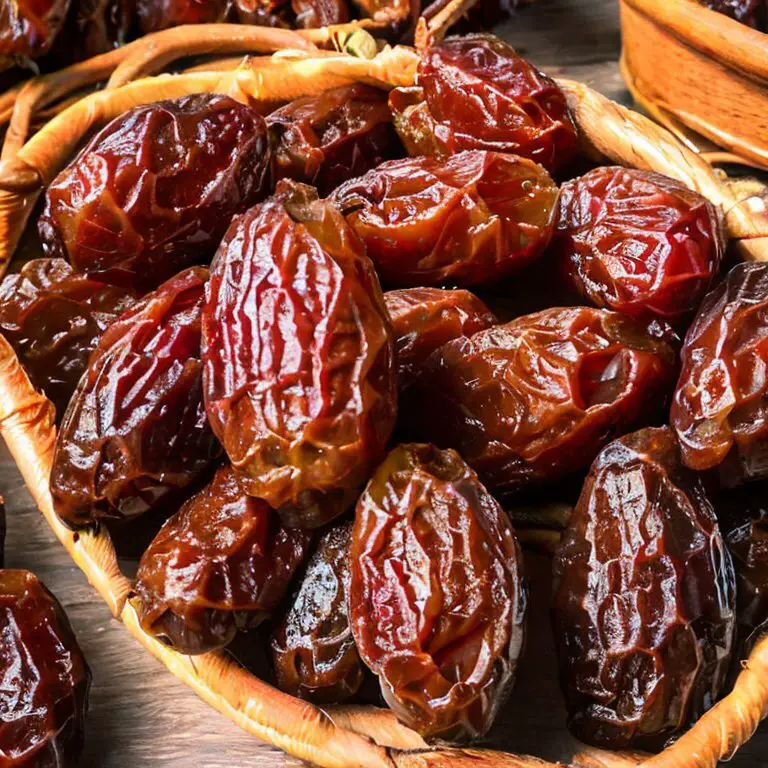
Once the Medjool dates have been harvested from the palm tree, they are usually shipped to supermarkets and stores in their natural, fresh state. It is important to note that Medjool dates have a relatively short shelf life and will begin to spoil if left at room temperature for too long. Therefore, they are often stored in refrigerators or freezers to prolong their freshness.
While Medjool dates are not dried fruits, they are often compared to other dried fruits such as raisins, apricots, and prunes. This is because they share similar characteristics such as a chewy texture and high sugar content. However, Medjool dates are significantly higher in nutrients such as fiber, potassium, and magnesium compared to most dried fruits. (See also Are Medjool Dates Healthier Than Other Dates?)
How to Eat Medjool Dates
In addition to being a delicious and nutritious snack, Medjool dates can also be used as a natural sweetener in various recipes such as smoothies, desserts, and baked goods. They can be easily incorporated into recipes by blending them into a paste or chopping them into small pieces.
(Learn more about how to eat them at How To Eat Medjool Dates)
Final Thoughts
In conclusion, Medjool dates are not technically dried fruits. While they may appear to be dehydrated due to their chewy texture and wrinkled appearance, they are actually considered to be fresh fruits that have undergone a natural drying process on the tree. This process concentrates their natural sugars and nutrients, resulting in a sweet and nutritious snack that can be enjoyed year-round.
Whether consumed as a snack or used as a natural sweetener, Medjool dates are a delicious and healthy addition to any diet. (See Medjool Dates Benefits to learn more about their benefits)
Lance has been passionate about the plant-based diet and we have been following a whole food plant-based diet for over 5 years. We focus on health, natural healing, weight management, animal rights, and the health of the planet and environment by focusing on whole plant-based foods and sustainable practices.
Learn more at the About Me page and follow on social media at the links below.




